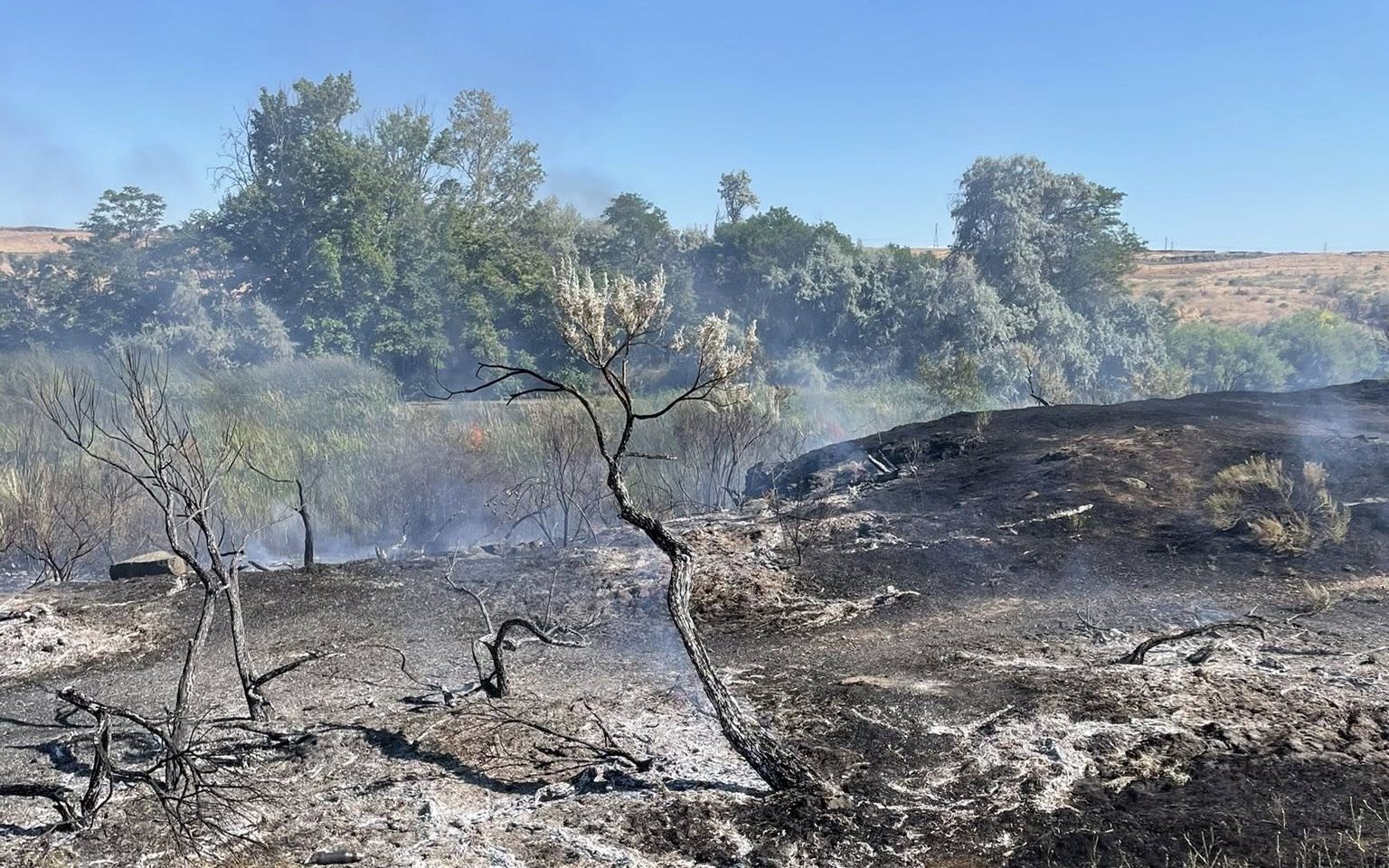Newly released memo suggests Brown wasn’t in the dark on public records concerns
Published 10:00 am Wednesday, September 11, 2019

- Brown
SALEM — Attorneys for Gov. Kate Brown repeatedly sought to stop the state’s official transparency advocate from finding and fixing weaknesses in Oregon’s public records law, and Brown was fully briefed on those developments in May, a newly released document shows.
In a memorandum to prepare Brown for a meeting with Oregon Public Records Advocate Ginger McCall, a lawyer for the governor, Emily Matasar, explained that she and her higher-ranking colleague Misha Isaak had already encouraged McCall to get their sign-off before publicly discussing public records policy. The pair also made the case that McCall’s moves to strengthen records laws were unneeded and reflected her lack of knowledge, the memo indicates.
That raises questions about Brown’s statement on Monday that she was unaware of tensions between her staff and McCall over the public records advocate’s independence from the governor’s office.
McCall informed the governor on Monday that she plans to resign effective Oct. 11. She cited what she said was pressure from the governor’s staff to advance Brown’s public records policy priorities over the public’s without saying Brown drove her choices and an assertion by Isaak — Brown’s top lawyer — that he was McCall’s boss.
Under a 2017 state law, the public records advocate is supposed to function independently of any particular political official. A draft opinion from the Oregon Department of Justice determined there is no evidence lawmakers intended Isaak to play any role in supervising the advocate or sign off on her work products. The draft opinion also said lawmakers clearly intended to constrain the governor’s powers to direct the advocate and to give the advocate an unusual degree of independence from her office.
The public records advocate, the governor and her two lawyers ultimately met on May 9 and McCall has said Brown made it clear she wanted the records advocate to “be on the team,” specifically that McCall should work closely with the Brown administration.
In an emailed statement Monday, Brown said “the allegations made today by Ginger (McCall) are a surprise to both me and my chief of staff (Nik Blosser).”
McCall also said on the OPB program Think Out Loud Tuesday that “I did bring up the issues around the independence (of the public records advocate) several times with both the governor’s staff and general counsel. So … I can’t really speak to what she knew or she didn’t know.”
Regarding why McCall’s allegations would be a surprise to the governor, Brown’s deputy communications director Kate Kondayen wrote in an email Tuesday that Matasar’s memorandum reflects the “perspective of Misha Isaak and Emily Matasar. Neither Gov. Brown nor her team heard from McCall about any ethical or use of authority concerns she had with the process at any point in the last year and a half.”
Brown on Monday blamed Isaak and Matasar for the situation, saying, “It appears this is a situation where staff were conflicted between the goals of serving the governor and promoting the cause of transparency. Let me be clear, there should be no conflict.”
For the second day in a row Tuesday, the governor’s spokespeople ignored a question about whether there would be any consequences for Isaak and Matasar as a result of the conflict Brown described.
Isaak, the governor’s top lawyer, is set to become a judge on the Oregon Court of Appeals Nov. 1, a job to which the governor appointed him. The governors’ spokespeople did not respond to a question about how Brown expects Isaak to approach public records cases on the Oregon Court of Appeals.
In her May 2 memorandum to the governor, Matasar listed McCall’s successes in her first year as public records advocate, including setting up the new office, hiring a deputy advocate and training roughly 1,500 government officials and members of the public on Oregon’s public records law.
But Matasar also voiced disapproval of McCall, twice using language that McCall said Isaak used during an earlier meeting. According to McCall, Isaak told her on Jan. 15, 2019 “that I do not know about the politics or nuance of Oregon” and therefore should avoid proposing public records reforms. McCall is also a lawyer and received her degree from Cornell Law School.
Matasar wrote that “Although the (advocate and Public Records Advisory Council’s first biennial report) contains many interesting ideas about improving the public records law and its administration throughout the state, other ideas demonstrate a lack of a nuanced understanding of the public records landscape in Oregon.”
And later in the memorandum Matasar reiterated, “Misha and Emily have already given Ginger the feedback that aspects of her report seem to lack context or nuance and that they would have appreciated a meaningful opportunity to comment on a draft of the report before finalization.”
Among the systemic issues McCall listed in the November 2018 report: no clear standard for fees Oregon governments can charge to provide public records and no option for records requesters to appeal public records denials by elected officials — such as lawmakers and the governor — short of going to court.
Governments have used high public records fees “to discourage requests and avoid accountability,” McCall wrote, citing her conversations with both government employees and people who have requested records.
Similarly if an elected official decides not to release public records, McCall wrote, “Most requesters simply do not have the resources to vindicate their rights in court. This creates a lack of accountability around the decisions of elected officials.”
Isaak and Matasar had “already given Ginger the feedback that … they would have appreciated a meaningful opportunity to comment on a draft of (the public records report) before finalization,” Matasar wrote.
On the topic of public records fees, Matasar pointed out that Brown’s administration had already signed an executive order to create a consistent system for state agencies and it could be problematic to put specific fee limits into law because of inflation.
As for McCall’s statement that Oregon could better hold elected officials accountable by making it easier to appeal their public records decisions, Matasar wrote there is no easy solution.
People who request public records can appeal government staffers’ decisions to local district attorneys or the Oregon Attorney General. A similar appeals process would not work for elected officials such as the governor or lawmakers, Matasar reasoned, because “It would create a unique and awkward situation to require one elected official to review the actions of another elected official and potentially order that official to take action,” Matasar wrote.
Finally, Matasar took issue with McCall’s critique of a broad exemption to Oregon’s public records law that allows elected officials to withhold public records possessed by another public official or agency but to which they “claim the right to withhold. …” McCall suggested the law should be changed to narrow what records elected officials can claim to control and to allow members of the public to more easily appeal such a claim. “This provision invites abuse,” McCall wrote.
Not so, responded Matasar in her memorandum to the governor.
“The report does not cite a single instance of an elected official withholding records of another public body,” Matasar wrote. “The last time an elected official shielded state agency records was in 2014 when Gov. Kitzhaber used (the law) to withhold Cover Oregon records, and a Google search did not reveal a single news story about elected officials withholding local government records.”
Had Matasar queried the public records advisory council, most of whose members were appointed by Brown, she would have gotten different answers about elected officials’ willingness to release records. Among the elected officials who have gone unchallenged over what journalists contend were excessive redactions, excessive fees or unjustified withholding of documents because court costs were too daunting are Portland school board members, Portland city councilors, lawmakers in the 2019 session, Multnomah County sheriffs and Brown herself.






